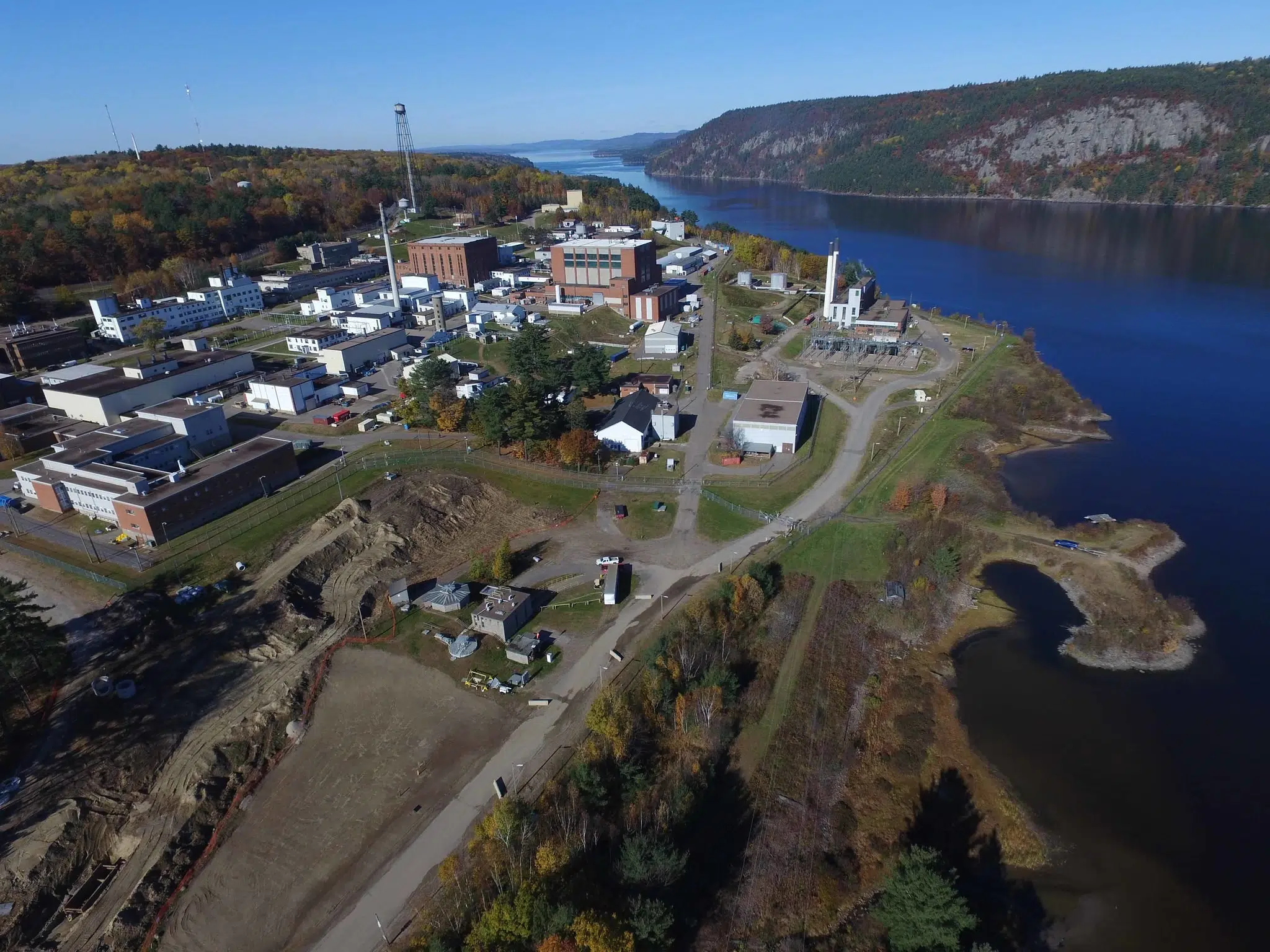Canadian Nuclear Laboratories (CNL) in Chalk River is looking at ways to supply clean energy to Garrison Petawawa.
According to a recent study completed by CNL, a Small Modular Reactor (SMR) could reduce the carbon footprint of the base in Petawawa by over 40 percent and help the Department of National Defense reach their emissions reductions targets.
CNL says the study looked at providing both electric and thermal energy from a SMR in Chalk River to Garrison Petawawa, which would reduce the need for diesel fuel.
While most of the electricity for Garrison Petawawa is supplied by the provincial grid, diesel generators provide additional capacity.
CNL says energy demands at the base will increase with significant growth in the coming years.
The study projects that Garrison Petawawa will increase electricity production by 59 percent and thermal energy by 9 percent.
CNL says SMR technology could potentially generate enough clean energy to power roughly 90 to 100 percent of the garrison’s off-hour energy demand, and between 45 to 55 percent during peak hours, reducing the greenhouse gas emissions by 18 to 50 percent overall at Garrison Petawawa.
In the scenario that was examined, two SMR units would provide thermal energy to meet local area heating needs, while the electrical energy needs for the base would be met through a combination of solar with battery storage.
The greatest opportunity to reduce greenhouse gas emissions was in building heat.
The Chalk River labs are located directly next to the boundary of Garrison Petawawa.
The President and CEO of Atomic Energy of Canada Limited (AECL), Fred Dermarkar, says small modular reactors have the potential to make a significant contribution to reducing greenhouse gas emissions and meeting net zero goals. They are also ideally suited to service small remote communities where today diesel is the only practical option, such as military bases.
Joe McBrearty, the President and CEO at Canadian Nuclear Laboratories says, with the potential siting of an SMR on the Chalk River Laboratories campus in the coming years, there’s a unique opportunity to work alongside Base Petawawa.
Plans are also in the works to build a Micro Modular Reactor in Chalk River that would be operational by 2026 or 2027. One micro modular reactor could power 5,000 homes and replace up to 200-milion litres of diesel fuel over the 20-year lifespan.
(written by: Rudy Kadlec)
